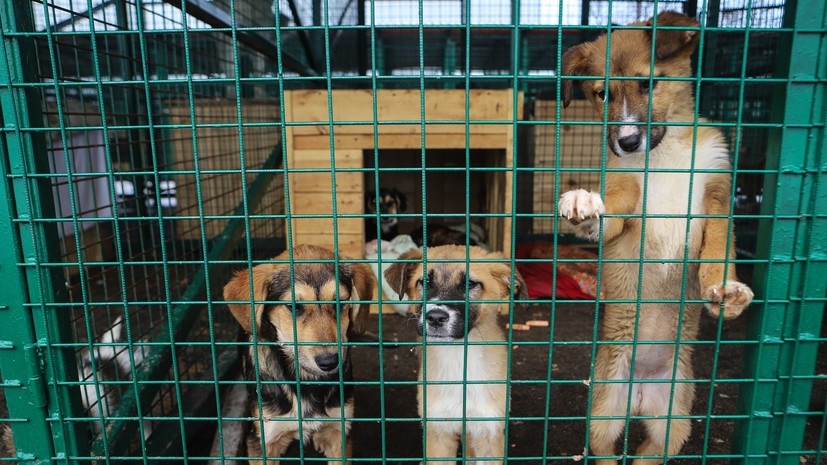In the near future, legislators will be able to approve a bill to tighten responsibility in the field of treatment of animals.
This was announced by Vladimir Burmatov, First Deputy Chairman of the Duma Committee on Ecology.
“Amendments to the Code of Administrative Offenses that toughen responsibility in terms of owning and handling animals... Fines for getting rid of animals, that is, for discarded animals, will be set at up to 30,000 rubles.
Fines for biting will be up to 200 thousand rubles (this is if there is no criminal offense), ”RIA Novosti quotes him as saying.
As the parliamentarian noted, these amendments have already been agreed with the federal executive authorities and are ready for adoption in the spring session of the State Duma.
He also pointed out that unsupervised pets are the cause of many problems.
“Samovygul is today a real scourge of cities, regional centers, villages.
Animals breed, and this is, accordingly, a population of neglected animals,” Burmatov explained.
According to him, the authorities of the constituent entities of the Russian Federation will be given additional powers in terms of establishing administrative responsibility for self-walking.
There will also be defined areas where it will not be possible to stay with pets.
Work on this bill was reported back in February against the backdrop of several cases of attacks by stray dogs on people in various regions of Russia.
Also on russian.rt.com “We propose to increase responsibility”: the State Duma announced the deadlines for introducing a law on punishment for the attack of stray dogs
In June, State Duma deputies adopted a bill on the construction of shelters for homeless animals using public-private partnerships.
“Currently, the need of the regions in animal shelters is provided only for a quarter, and in more than a dozen subjects there is not a single such institution.
The main problem of the lack of shelters is insufficient funding,” said Vyacheslav Volodin, speaker of the lower house of parliament.
He believes that the inhabitants themselves are the reason for the appearance of stray animals.
“That's right - we all have to do real things: build shelters, promote a responsible attitude towards our smaller brothers.
Then the problem will go away - there will be no animals abandoned by soulless owners, ”he said.
According to the State Duma, there are 461 animal shelters in 79 regions of the Russian Federation.
At the same time, 190 shelters belong to public organizations, 157 are private and 81 are municipal.
Also, 17 points for the temporary keeping of animals have been created.
"Penalty for throwing away a pet should be"
The Civic Chamber of the Russian Federation reacted positively to the initiative to tighten responsibility in the field of treatment of animals.
“The penalty for dropping a pet should be mandatory.
But this is a half measure.
Until there is mandatory registration of pets in the country (with subsequent marking of animals - this can be chipping or applying indelible marks), until we know what kind of dog is thrown out, whose dog is thrown out, we will not be able to fine anyone.
And of course, there must be registration of pets and fines for self-walking animals.
Because we often come across situations when it is not stray dogs that attack, but the owner's ones - on their own.
Therefore, it is also necessary to add fines for self-walking, ”Elena Sharoikina, head of the commission on ecology and environmental protection, told RT.
The issue of punishment for the irresponsible treatment of animals is long overdue, noted the honored lawyer of Russia Ivan Solovyov.
“Unfortunately, getting rid of pets is an established practice.
Someone feeds dogs and cats in the summer season, and then leaves them to their fate.
And someone even cools down to pets - as a commodity.
As a result, unsterilized animals run wild, multiply, multiplying packs of stray dogs and cats, which pose a threat to health, and sometimes human life, ”the RT interlocutor emphasized.
According to him, in order for the state to exercise control and supervisory functions in this area, it is necessary to establish a clear record of domestic animals, actions performed with them, as well as sterilization of homeless dogs and cats.

